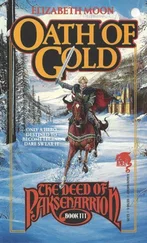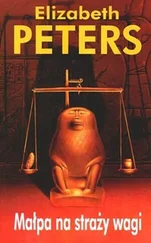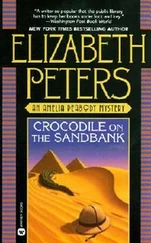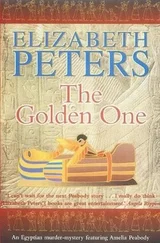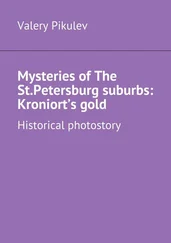“Isn’t that a little romantic for J. S. Bach?” I asked.
John was trying to play the oboe obbligato on a tissue-covered comb. He broke off long enough to remark, “Your theology is deficient, duckie. It’s not a love song, it’s all about the marriage of the faithful soul to Christ.”
“It sounds like a love song.”
“So it does,” John said agreeably. He returned to the comb.
I fell asleep in the middle of a long lecture on horticulture—I remember he waxed eloquent on the subject of double digging, a technique on whose details I am hazy, but which, he said, his mother insisted upon—and did not waken until he moved to put more wood on the fire. I rubbed my eyes. “Sorry. I’m so tired….”
“You’ve had a busy day. Why don’t you lie down?”
“The floor’s too cold,” I mumbled.
“Come here, then.”
He was still holding me when I woke again to find that the darkness had been replaced by gray gloom. At first I thought the bright yellow streaks across the floor were paint.
“Sunlight,” I muttered.
“It’s morning,” said John. “‘Arise, fair sun, and kill the envious moon.’ Come on—be a big, brave girl—don’t topple over—”
I was so stiff I could hardly move. Stiff, cold, hungry…I looked up at him from under my hair. He had risen to his feet and was methodically flexing his arms, grimacing as he moved them.
“Did you sleep?” I asked.
“How could I? ‘my strength is as the strength of ten,’” John chanted, stamping his feet in cadence, “‘because my heart is pure.’”
The truce had lasted only one night, and the barriers were up again. I had expected it, but that didn’t keep me from resenting it. Silently I extended my hand; briskly he pulled me to my feet, turned me around, and gave me a hearty slap on the backside.
“Dusty,” he remarked. “Let’s have a look outside. At this moment, I’d trade you and the gold for a hot breakfast.”
I stood for a moment, stretching creaking muscles and looking around. The ruined building had been stripped of all portable objects, but even in its prime it had lacked the exuberant charm of the local Catholic churches. There was nothing to be seen except a bare floor littered with pieces of the fallen pews, bare stone walls, and boarded-up windows. Sunlight stretched long fingers through the cracks, and drifts of snow marked breaks in windows and roof. The fire had died to coals.
I pushed through the swinging doors and found myself in a narrow vestibule. The outer door was ajar, held open by a heap of drifted snow. John must have had to force it. No small feat, in that howling storm, with muscles already half frozen and my dead weight encumbering him. His footprints led up and over the drift. Shrugging into my jacket, I followed.
I had to shield my eyes with both hands. The world had changed overnight, into something so beautiful I forgot physical discomfort in sheer wonder. The sky overhead was a pure, cold blue, but behind the eastern mountains the bright shades of dawn framed the frosty peaks. The shadows on the white slopes were not gray but ravishing tints of pastel—pale rose, blue, lavender. The blanket of new snow dazzled like cold fire—swan-white, angel-white, glittering with billions of tiny sparkles.
My sunglasses were in the pocket of my jacket. After I put them on, I dared to open my eyes, and then I saw John. He was knee-deep in snow, even though he stood under the porch eaves where the snow was less deeply drifted. It undulated across the open courtyard in lovely dimpled dunes. My poor precious Audi was only an elephant-sized lump.
John stared dispiritedly at the scene, his hands shielding his eyes, and I decided this was not an appropriate moment to comment on the splendor of the view. “Where are your sunglasses?” I asked.
“In my car,” John said, snapping the words off like icicles.
“And your car is…”
“Halfway down the slippery slope beyond, under a foot of snow,” said John. “Were you aware that just over the hill the road drops straight down at a forty-five-degree angle?”
“Surely—” I began.
“I didn’t see the church until I had passed it. I had no idea where you were going. I’ve never driven this road before. I was going too fast—as were you—”
From across the valley came a far-off, elfin chiming of bells. “‘Oh sweet and far, from cliff and scar,’” I quoted. “Merry Christmas, John.”
“So what shall we do?” I asked brightly. We had gone back inside, and John was doggedly feeding the fire, as if he meant to settle down for a long stay. “You should put it out,” I went on. “We can’t leave—”
“That is the situation in a nutshell,” said John. “We can’t leave. Not unless you plan to spend the rest of the winter in a snowdrift between here and Bad Steinbach.”
“Oh, come on, don’t be a sissy. It’s a beautiful day and it can’t be more than a couple of miles—”
“Just a nice little downhill run on skis,” said John. “Unfortunately we don’t have any.”
“I do, actually. On top of the car. I never got a chance to use them. Hell of a vacation.”
His expression lightened briefly as he considered this new information, but it quickly closed down again. “The plows and the Ski Patrol will be out before long—”
“On Christmas Day?”
“Yes, I should think so. This is an emergency, and there are bound to be idiots like us who were caught in the storm.”
“We can’t just sit here and wait to be found.”
“Oh, do use your head,” John said crossly. “Even if we could dig one of the cars out, the road is impassible. I don’t fancy a two-mile hike through drifts that are up to my neck, either.”
“I could ski down and get help.”
“It’s too risky. If you got in trouble there’d be no one to bail you out. It doesn’t take long to freeze to death when you’re lying helpless with a broken leg.”
“Are you always like this in the morning?” I demanded.
“No, it’s just a performance I put on in order to discourage long-term relationships.”
“I can’t sit around here all day! I’ve got to get poor Tony out of the slammer—”
“Tony?”
“I walked out on him,” I admitted guiltily. “The killer set him up—one of the maids found him standing over Friedl’s freshly slaughtered body, and raised the alarm. He was surrounded by what looked like the beginning of a lynch mob when I left.”
“Oh, I shouldn’t think they’d lynch him,” John said coolly. “They’re very law-abiding in these parts, and Friedl didn’t inspire that variety of devoted affection.”
“Even so—”
“I’ll tell you what we could do.” John stroked his stubbly chin. “Start a fire outside—smoke signal.”
“On Frau Hoffman’s grave?” I asked.
He wasn’t abashed. “Kill two birds with one stone, so to speak.”
“Okay,” I said.
“Just as well to have a look before you call the cops,” John went on. “If you’re wrong, you’ll look a bloody fool—Did you say yes?”
“I said okay. Same thing.”
We used scraps of the broken pews for shovels. The air was cold but utterly still; John had no trouble getting the fire started. It burned clear and bright until we piled pine boughs on it. As we worked, the chiming of distant Christmas bells made a macabre accompaniment. I hated what I was doing, even though I felt Hoffman wouldn’t mind.
In between hauling wood from the church, I tackled my buried car. Clearing the ski rack wasn’t difficult; there was only a foot of snow on top. On the lee side, away from the wind, a lonely fender protruded, and I was able to dig my way into the door. My emergency kit produced some dried fruit—“petrified” would be more accurate. I carried it to John, like a dog offering a bone, but this time he was not amused.
Читать дальше

